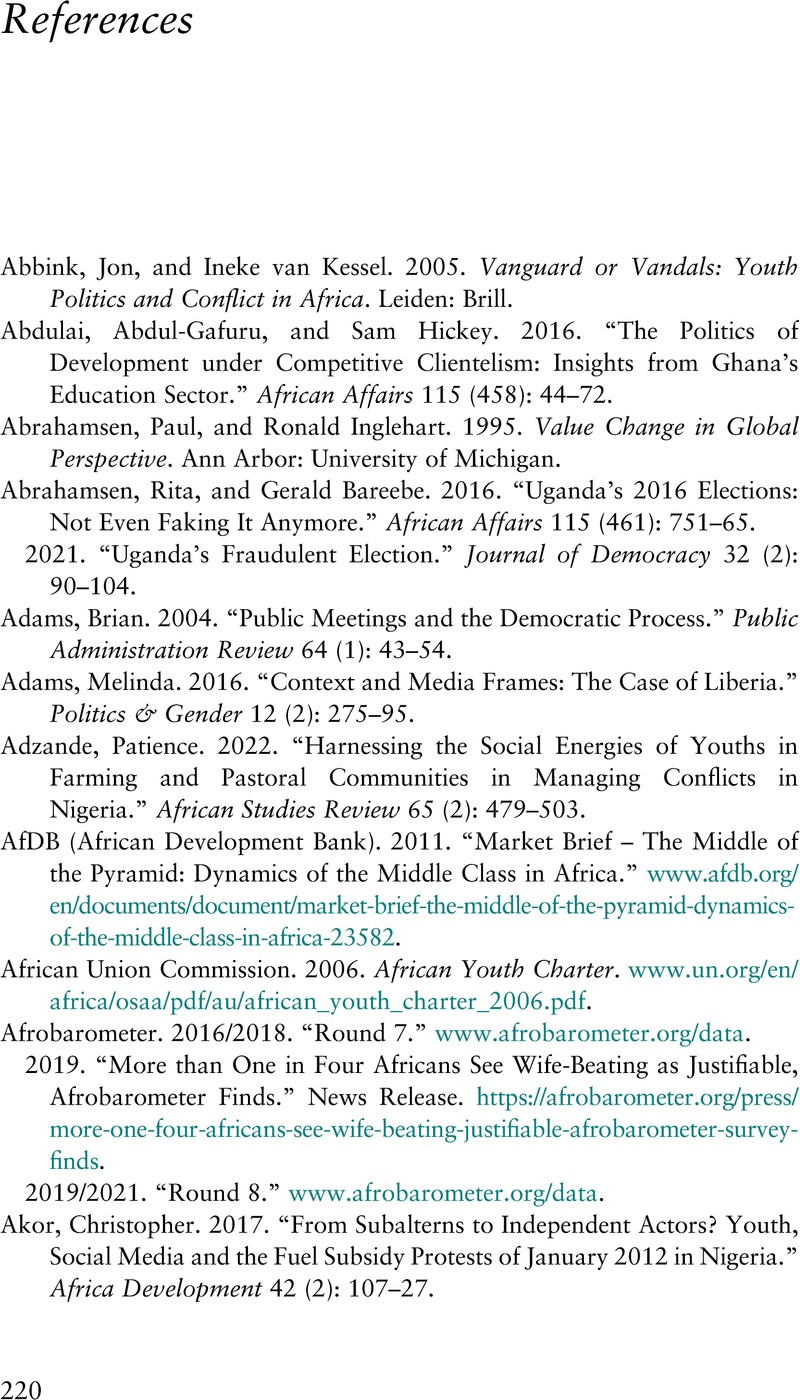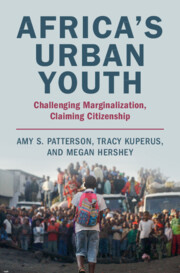Book contents
- Africa’s Urban Youth
- Africa’s Urban Youth
- Copyright page
- Dedication
- Contents
- Figures
- Tables
- Acknowledgments
- Abbreviations
- Introduction
- 1 Theorizing Urban Youth and Everyday Citizenship
- 2 Manifesting Citizenship through Local and Distinct Actions
- 3 Engaging the State
- 4 Confronting Economic Marginalization
- 5 Contesting Citizenship through Religious Identity
- 6 Affirming and Challenging Patriarchy
- 7 Channeling Frustration through Exit, Exclusion, and Engagement
- Conclusion
- Book part
- References
- Index
- References
References
Published online by Cambridge University Press: 10 August 2023
- Africa’s Urban Youth
- Africa’s Urban Youth
- Copyright page
- Dedication
- Contents
- Figures
- Tables
- Acknowledgments
- Abbreviations
- Introduction
- 1 Theorizing Urban Youth and Everyday Citizenship
- 2 Manifesting Citizenship through Local and Distinct Actions
- 3 Engaging the State
- 4 Confronting Economic Marginalization
- 5 Contesting Citizenship through Religious Identity
- 6 Affirming and Challenging Patriarchy
- 7 Channeling Frustration through Exit, Exclusion, and Engagement
- Conclusion
- Book part
- References
- Index
- References
Summary

- Type
- Chapter
- Information
- Africa's Urban YouthChallenging Marginalization, Claiming Citizenship, pp. 220 - 259Publisher: Cambridge University PressPrint publication year: 2023

